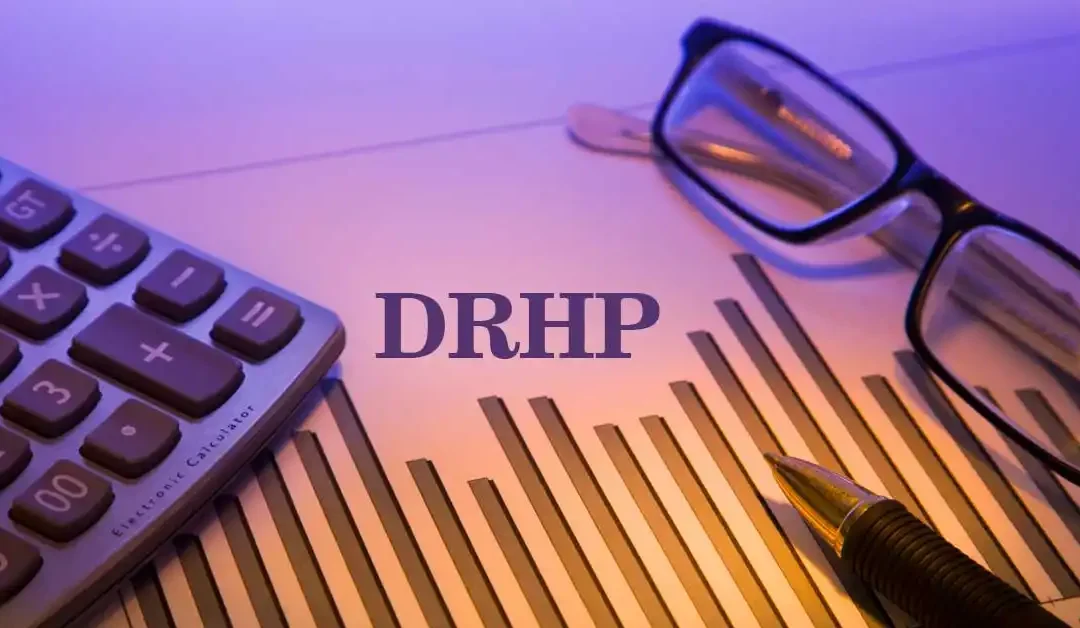If you’re planning to invest in IPOs or pre-IPO shares in India, there’s one document you absolutely must understand: the Draft Red Herring Prospectus, or DRHP. It’s the foundation of informed investing, offering a transparent look into a company’s health, purpose, and IPO plans. Whether you’re a beginner or an experienced investor, understanding DRHP can help you make smarter, safer decisions.
Let’s break it down.
📘 What is DRHP?
DRHP stands for Draft Red Herring Prospectus. It’s a preliminary document that a company files with SEBI (Securities and Exchange Board of India) when it plans to raise capital through an Initial Public Offering (IPO).
🧩 Why is it Called a “Draft”?
The “Draft” part means it is not yet final. It’s the first version submitted to SEBI for review. Once SEBI examines the DRHP, provides feedback, and the company makes the required changes, it files the final version, called the Red Herring Prospectus (RHP).
So essentially:
| Stage | Document | Purpose |
|---|---|---|
| Before SEBI review | Draft Red Herring Prospectus (DRHP) | Initial disclosure to seek SEBI approval |
| After SEBI review & updates | Red Herring Prospectus (RHP) | Final prospectus for investors before IPO |
📊 What Information Does DRHP Contain?
DRHP is rich in detail and serves as a one-stop report on the company planning to list. It typically includes:
- Company Overview
History, business model, promoters, key metrics - Financial Statements
Audited numbers for the last 3–5 years - Objects of the Issue
Why the IPO is being launched – for debt repayment, expansion, etc. - Risk Factors
All possible risks that may affect the business or stock price - Use of Funds Raised
A breakdown of how the IPO money will be spent - Promoter & Shareholding Details
Pre-IPO ownership structure, major investors, ESOPs, etc. - Legal Proceedings
Ongoing litigations and regulatory actions (if any) - Company Strategy
Growth roadmap and competitive advantage
🔍 Why is DRHP Important for Investors?
Reading the DRHP helps investors:
✅ Understand the business fundamentals
✅ Know where your money is going
✅ Evaluate risks vs. rewards
✅ See if Pre-IPO valuations are justified
✅ Check how much promoters are diluting their stake
Pro Tip: If a promoter is selling a large chunk of their shares in the IPO, it might be a red flag.
📁 Where Can You Find DRHPs?
You can find DRHPs on:
- The official SEBI website (www.sebi.gov.in)
- The company’s website (usually under “Investor Relations”)
- Stock exchange websites like NSE & BSE
- Investment platforms like PreipoShare.in if you’re tracking Pre-IPO companies
🧠 How to Analyze a DRHP – Step-by-Step
- Start with the Risk Factors – they’re listed first for a reason.
- Review the Financials – look for consistent revenue/profit growth.
- Check Use of Proceeds – avoid companies using funds to repay promoters.
- Look at Valuation Multiples – compare with listed peers.
- See the Pre-IPO Investors – strong VCs or institutions = good sign.
📝 DRHP vs RHP vs Prospectus – Know the Difference
| Document | When It’s Filed | Key Purpose |
|---|---|---|
| DRHP | Initial draft before SEBI comments | To initiate IPO review |
| RHP | Final version after SEBI approval | Public document before IPO opens |
| Prospectus | After IPO pricing is finalized | Legal document for public offering |
🛎️ Final Thoughts
In 2025, with IPOs gaining momentum and pre-IPO investing becoming more accessible, understanding the Draft Red Herring Prospectus (DRHP) is essential for every serious investor. Whether you’re planning to invest in IPOs or buy unlisted shares on platforms like PreipoShare.in, reviewing the DRHP is the smartest move you can make.
Want to explore Pre-IPO companies that have already filed DRHP? Visit PreipoShare.in for updated listings, insights, and investment opportunities.
📚 FAQs on DRHP (Draft Red Herring Prospectus)
Q1: What is the full form of DRHP?
A: DRHP stands for Draft Red Herring Prospectus, a preliminary document filed with SEBI before launching an IPO.
Q2: Is reading the DRHP necessary before investing in an IPO?
A: Yes. The DRHP contains vital information about the company’s financials, risks, and IPO objectives, crucial for making an informed investment decision.
Q3: Where can I find a company’s DRHP?
A: You can access DRHPs from:
– SEBI’s website (www.sebi.gov.in)
– The company’s Investor Relations page
– Platforms like PreipoShare.in for Pre-IPO research
Q4: Is DRHP legally binding?
A: No. DRHP is only a draft and may change. Only the final Red Herring Prospectus (RHP) and Prospectus are legally binding documents used in the IPO process.
Q5: How is DRHP different from RHP?
A: DRHP is the initial version filed for SEBI’s review. RHP is the updated and final version after SEBI’s feedback, shared publicly before the IPO launch.
Q6: Does DRHP mention Pre-IPO investors?
A: Yes. It lists existing investors, ESOP holders, and any pre-IPO placements made — useful for evaluating early backing and valuations.

